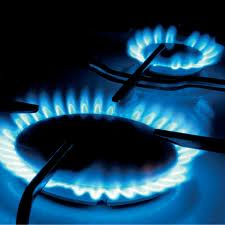|
|
|
|
|

By John Fingleton
The sector suffers from being the ball in a political game, writes John Fingleton
Recent interventions by politicians on energy prices have made a bad situation worse. Ed Miliband’s proposal to cap prices creates incentives for energy companies to increase prices now, while Sir John Major’s windfall tax gives incentives to raise their operating costs to reduce profit.
Higher prices and less efficient energy companies are hardly what consumers or the British economy need. Uncertainty over policy in the next two years will damage investment, harming consumers and the economy long into the future.
David Cameron has now proposed a “competition test”. This will not resolve the problem. Ofgem, the regulator, has undertaken two competition reviews of the UK’s gas and electricity retail markets since 2008. Both times it found aspects of the market weakened competition between providers. Its recommendations to increase customer switching, simplify tariffs and increase transparency introduced further regulatory measures, the costs of which get passed on to consumers. When energy companies’ primary focus is on politicians and regulators, there is less space to focus on the consumer.
The outcome of all this is a market in which regulation trumps competition, with a bigger role for Ofgem. Potential entrants face even larger barriers because of this regulatory complexity. Big business meets big government and both get bigger. A “competition test” risks repeating this cycle.
What is puzzling is that this market has not been referred to the Competition Commission. This is the established method of looking at problematic markets, and has been used to deal with airports, supermarkets, payment protection insurance, and many other areas. Why has it not been used?
There are, I believe, two reasons. First, sector-specific regulators such as Ofgem are loathe to refer their sectors to the CC, possibly because it involves giving up control to an independent body. It is regrettable that Ofgem has not addressed this before now, and particularly in 2008/09 when it explicitly rejected the option.
The second reason is that politicians’ desire for rapid solutions means we have an annual bout of short-term meddling rather than any serious long-term review of the structure of this vital market. If our politicians genuinely want to make the UK energy market perform more effectively and serve consumers better, they should support the referral of the market by Ofgem to the CC. The benefits would be many.
The first benefit would be that the CC has extraordinary powers enabling it to get to the root of the problem, rather than tinker with the symptoms. It could, should the evidence support doing so, break up the energy companies, as it did with airports. It could order different trading arrangements, and it could dictate different pricing approaches.
Second, consumers have lost trust in this market. Their suspicion is aimed not only at energy companies, but also rightly at politicians and at Ofgem. The CC is independent of all these players and offers the best hope of restoring that trust.
Absent an independent process, this market will suffer further from being the ball in a political game. Although the CC inquiry would take two years, putting it beyond the next election, the sector needs a stable, non-politicised environment if it is to undertake the investment needed to serve consumers and businesses. This may be why even the chief executive of EDF has called for a CC inquiry.
A third benefit of using the CC process is that, being the established method, companies legitimately expect an inquiry if there is a problem in their market. It is part of business as usual. Inventing new processes has a chilling effect on investment in other markets which fear they might be next.
Fourth, even if the CC did not ultimately decide to implement structural changes, its examination would have the benefit of clarity. Establishing whether the pass-through of wholesale prices is fair and competitive would help restore consumer confidence in the market.
Ofgem should do this without delay. If not, the government should transfer Ofgem’s responsibility for competition to the newly created Competition and Markets Authority.
A competition test which reports back in spring without reference to the CC will simply be a waste of time. Conversely, a CC reference would put competition above regulation, take politics out of the issue and provide the right competitive market structure for UK energy companies to make long-term investment and serve their customers effectively.
The writer is chief executive of Fingleton Associates and was chief executive of the Office of Fair Trading from 2005-12